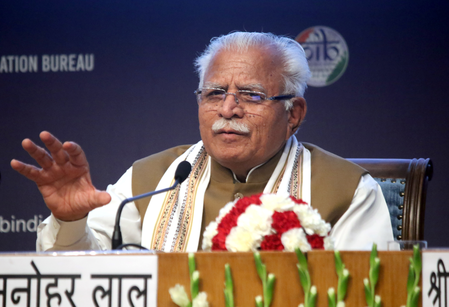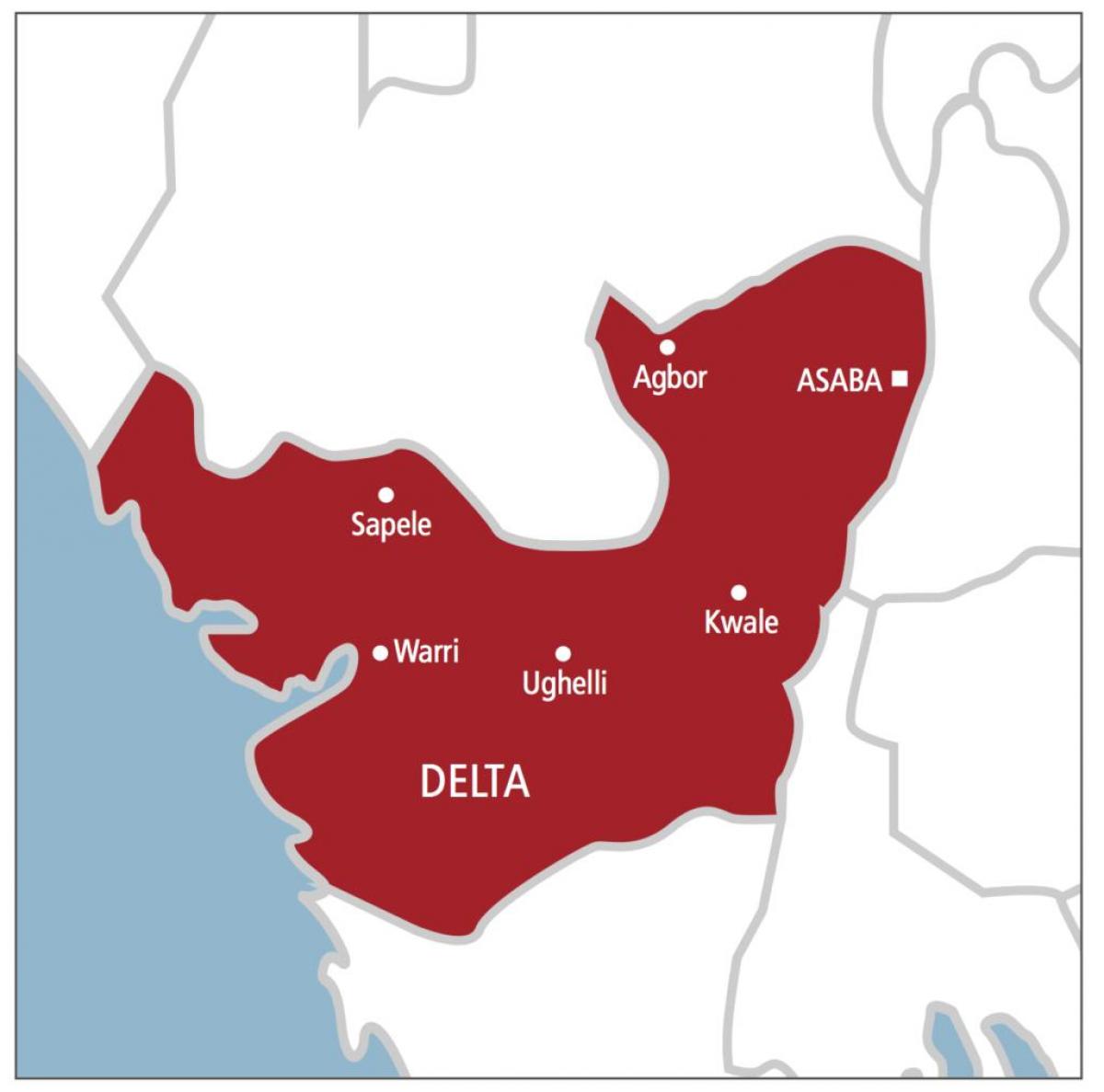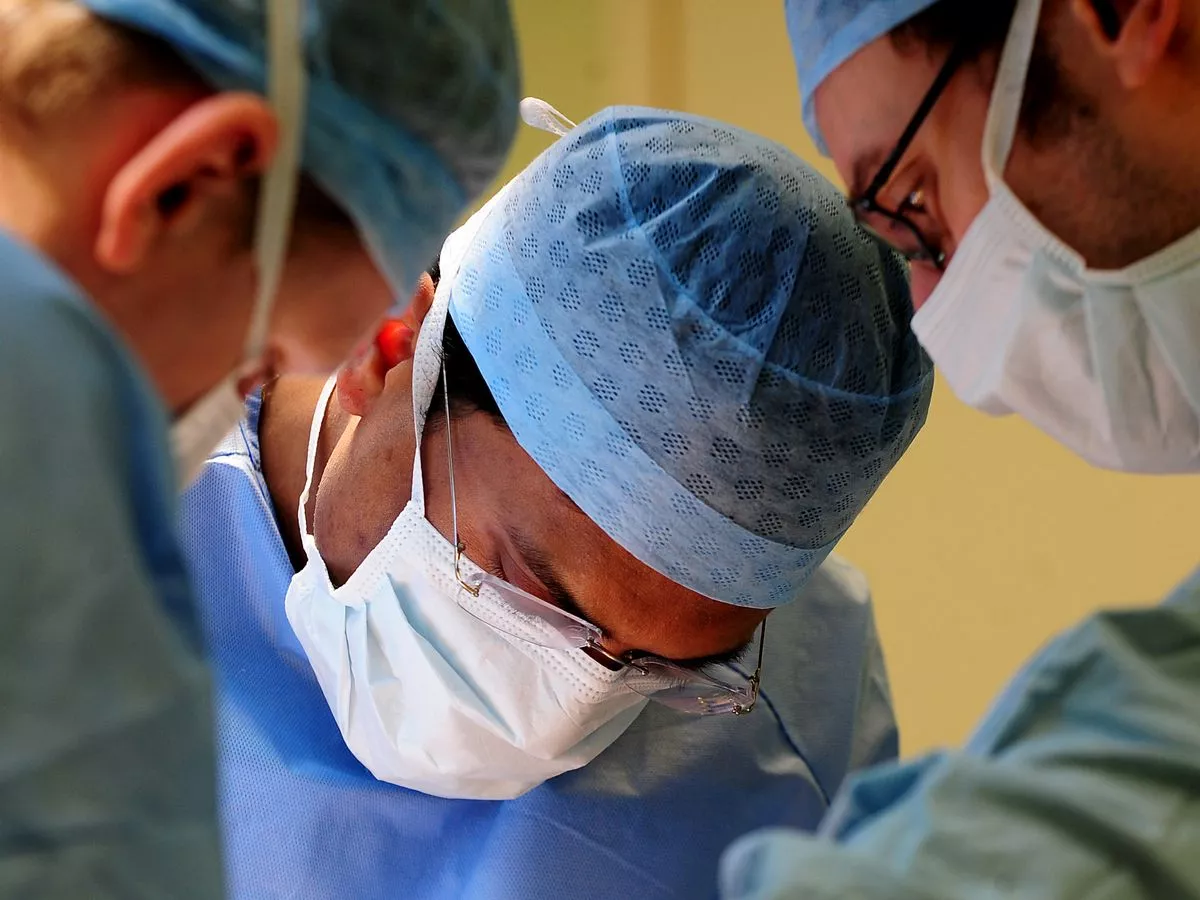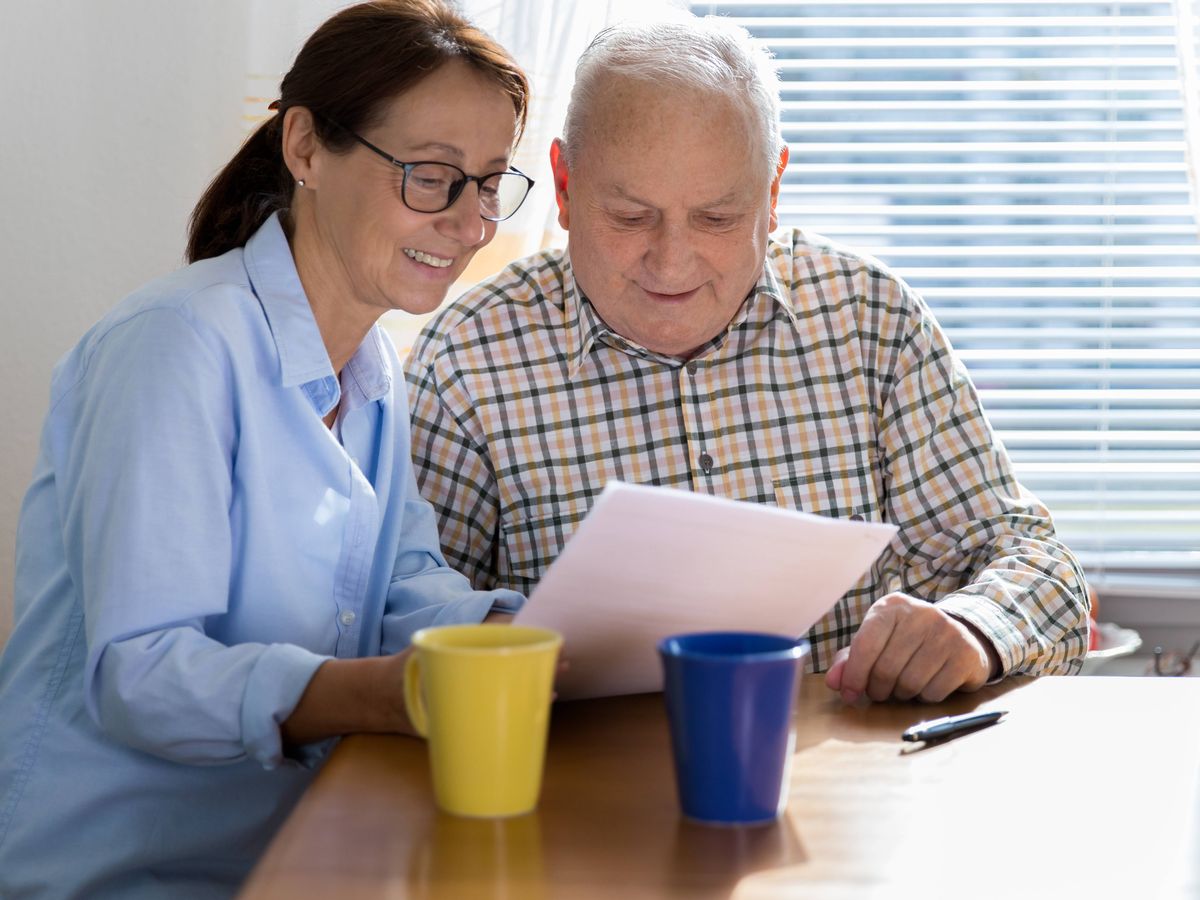By Editor,Mark Duell
Copyright dailymail
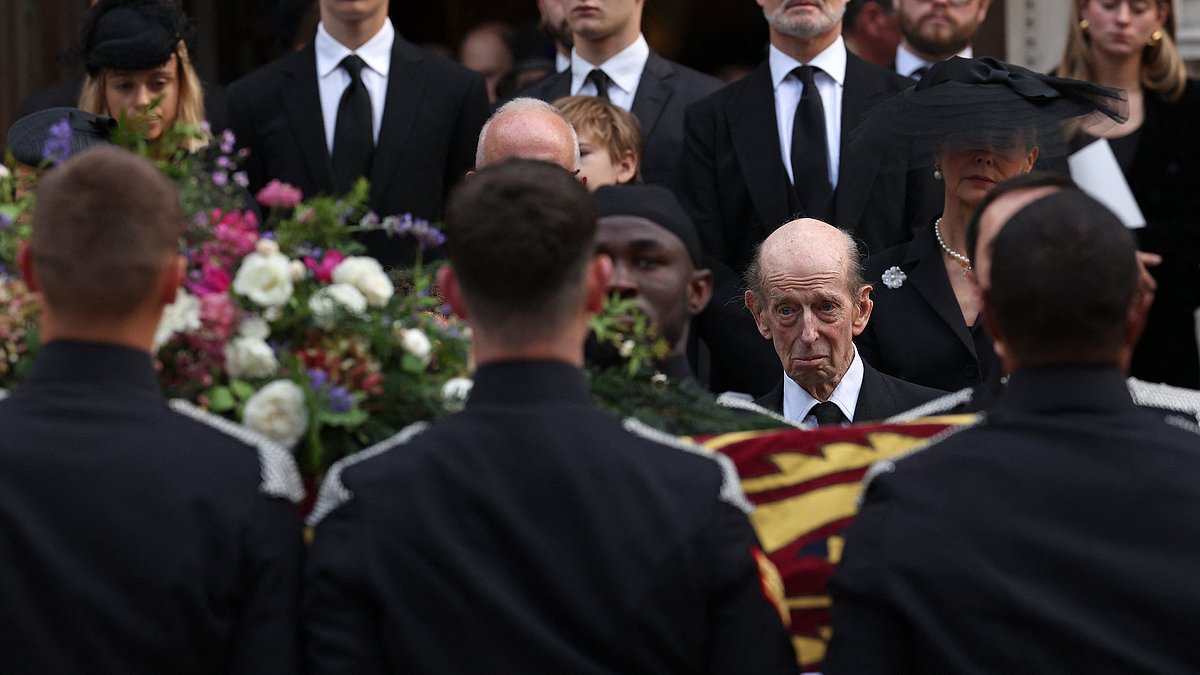
An emotional Duke of Kent bid farewell to his wife of 64 years today as senior royals gathered for the Duchess of Kent’s funeral after her death aged 92. The King, Prince William, Kate, Prince Andrew and Princess Anne were among those paying tribute at the Catholic service at Westminster Cathedral. The Duke followed closely behind her coffin after the funeral as it was slowly carried outside and watched as it was placed inside the royal hearse.
Earlier, the Duke had entered the cathedral holding a walking stick in poignant scenes, surrounded by his family including his daughter Lady Helen Taylor. But Buckingham Palace announced just two hours before the private family service began that Queen Camilla had pulled out as she recovers from acute sinusitis. Among the other royals attending were Vice Admiral Sir Tim Laurence, the Duke and Duchess of Gloucester and Prince Andrew with his ex-wife Sarah Ferguson.
Andrew, who no longer carries out official duties for the monarchy after stepping down six years ago amid the furore over his friendship with financier Jeffrey Epstein , exited his car first and joined Sarah as they walked in together. Following the service, Andrew was seen talking with William and Charles on the steps of the cathedral. The Duke of Kent’s brother, Prince Michael of Kent, appeared frail and walked slowly using a stick as he made his way into the church for the funeral. He was accompanied by his wife Princess Michael of Kent, who was also using a stick.
With them was their daughter Lady Gabriella Windsor, and they led a large contingent of royals all dressed in black in mourning, including Lord Frederick Windsor and Lady Sophie Windsor, with some of the party arriving together by bus. Lady Helen Windsor, wearing a hat with tulle detail, joined her father, the Duke of Kent, followed by her brothers the Earl of St Andrews and Lord Nicholas Windsor. The King arrived with his top aide, principal private secretary Sir Clive Alderton, and smiled after arriving before the doors of the cathedral were closed behind him.
William had a white handkerchief tucked in his top pocket, while Kate wore a black hat with a large bow at the back and netting detail at the front, and pearl earrings, with her hair down at the back, as well as a necklace belonging to the late Queen. Former Formula One world champion Sir Jackie Stewart and actresses Rula Lenska and Dame Maureen Lipman were among the other mourners in attendance. The service was conducted by Cardinal Vincent Nichols, leader of the Roman Catholic church in England and Wales.
Personal elements of the ceremony included the participation of three of the Duchess’s grandchildren – Lady Marina-Charlotte Windsor, Eloise Taylor and Albert Windsor – who read the Prayer of the Faithful. The requiem mass, a Catholic funeral, is the first to be held for a member of the monarchy in modern British history and featured a Scottish bagpipe lament performed during Queen Elizabeth II’s funeral at Windsor Castle in 2022.
A piper from The Royal Dragoon Guards played the lament – Sleep, Dearie, Sleep – while processing from the Chapel of the Blessed Virgin Mary, past the Duchess’s coffin in the Nave and down the cathedral’s central aisle. The late Queen’s funeral service in St George’s Chapel ended with a piper playing the same tune. The choir and organist of Westminster Cathedral provided choral music, composed by Maurice Durufle.
The music included Mozart’s Ave verum corpus, selected by the Duchess as her favourite piece when she was on Desert Island Discs in 1990. Katharine, the wife of the late Queen’s cousin the Duke of Kent, died peacefully at her Kensington Palace home, surrounded by her family, on the evening of September 4. A devout follower of the Roman Catholic faith, the Duchess became the first member of the royal family to convert to Catholicism for more than 300 years, doing so in 1994, and it was her wish to have her funeral at Westminster Cathedral.
Meanwhile the announcement about Camilla’s absence today raised questions over her attendance at US President Donald Trump’s high-stakes and busy state visit, which begins in full at Windsor tomorrow and is being hosted by the King. The Queen, is, however, hopeful that she will have recovered sufficiently to be able to attend all royal elements of the controversial American leader’s trip as planned, with highlights including a lavish state banquet. A Buckingham Palace spokesperson said: ‘With great regret, Her Majesty The Queen has withdrawn from attendance at this afternoon’s Requiem Mass for The Duchess of Kent as she is recovering from acute sinusitis.
‘Her thoughts and prayers will be with The Duke of Kent and all the family.’ The Duke of Kent has been informed, and is said to fully understand Camilla’s decision, and has sent his best wishes for a speedy recovery. The Queen travelled down from Scotland this morning before heading to Windsor to rest. At Westminster Cathedral today, the Duchess’s coffin is a wicker construction made from English willow and is draped with the royal standard which has a white ermine border signifying she was the spouse of a prince.
A large wreath of British garden flowers chosen by the Duchess’s family was placed on top of the coffin and included white roses, the symbol of Yorkshire, the county where she was born. The floral tribute featured sprays of rosemary for remembrance, oak leaves for strength, seasonal September flowers symbolising farewell, achillea representing healing and strength, jasmine for amiability and sprigs of yew from the gardens of Hovingham Hall, the Duchess’s childhood home, representing eternal life.
Soldiers from The Royal Dragoon Guards have played an important role during her Catholic funeral, which traditionally runs over two days, with a piper leading the funeral cortege and other soldiers carrying the coffin into the cathedral when it arrived yesterday evening. A personal message by the Pope was read during the service praising the duchess’s ‘legacy of Christian goodness’ and her ‘devoted care for vulnerable people in society’. The Pope’s words, which were read by Archbishop Miguel Maury Buendia, Apostolic Nuncio to Great Britain, said: ‘I was saddened to learn of the death of Her Royal Highness The Duchess of Kent and I send heartfelt condolences, together with the assurance of my prayerful closeness, to Your Majesty, the members of the royal family, and especially to her husband, the Duke of Kent, and their children and grandchildren at this time of sorrow.
‘Entrusting her noble soul to the mercy of our Heavenly Father, I readily associate myself with all those offering thanksgiving to Almighty God for the duchess’s legacy of Christian goodness, seen in her many years of dedication to official duties, patronage of charities and devoted care for vulnerable people in society. ‘To all who mourn her loss, in the sure hope of the resurrection, I willingly impart my apostolic blessing as a pledge of consolation and peace in the Risen Lord.’ The Duchess’s is the first royal funeral at the cathedral in the Victoria area of Central London since its construction in 1903. The King is not be the first monarch to have attended a Catholic funeral, as Queen Elizabeth II attended the Catholic state funeral of King Baudouin of the Belgians, at St Michael’s Cathedral in Brussels, in August 1993.
Charles, when Prince of Wales, went to Pope John Paul II’s funeral, representing his mother the late Queen, in 2005, while his son William attended Pope Francis’s funeral mass earlier this year. Yesterday, the Duchess’s coffin was received during a solemn ceremony at the cathedral on the eve of her funeral service. Soldiers from The Royal Dragoon Guards, a regiment she supported as deputy Colonel-in-Chief, were given the duty of carrying the coffin from the royal hearse into the place of worship.
Immediate family, including her widower, the Duke of Kent and their daughter Lady Helen Taylor, had been welcomed by the Dean of Westminster Cathedral Father Slawomir Witon and watched from the cathedral steps as the soldiers slowly carried the coffin. Before the coffin’s arrival, the Duke of Kent’s siblings Prince Michael of Kent and Princess Alexandra entered the cathedral to take their place before a series of private funeral rites. It had set off on its journey from Kensington Palace with a piper from The Royal Dragoon Guards walking ahead of the cortege for the first few minutes.
The funeral rites included a Vigil for the Deceased, Rite of Reception, which usually involves the coffin being sprinkled with holy water, and evening prayers known as Vespers taken by Bishop James Curry, Auxiliary Bishop of Westminster and Titular Bishop of Ramsbury. At the conclusion the Cross and a Book of The Gospels was placed on the coffin inside the Chapel of the Blessed Virgin Mary. The Duchess was known for consoling losing Wimbledon finalists, notably a tearful Jana Novotna in 1993, and presented trophies at the championships for many years.
She preferred to be known as Mrs Kent and dropped her HRH style, retreating from royal life to spend more than a decade teaching music in a state primary school in Hull. The Duchess died peacefully at her Kensington Palace home on September 4 surrounded by her family. Announcing her death the following day, Buckingham Palace said: ‘It is with deep sorrow that Buckingham Palace announces the death of Her Royal Highness The Duchess of Kent. ‘Her Royal Highness passed away peacefully last night at Kensington Palace, surrounded by her family.
‘The King and Queen and all Members of The Royal Family join The Duke of Kent, his children and grandchildren in mourning their loss and remembering fondly The Duchess’s life-long devotion to all the organisations with which she was associated, her passion for music and her empathy for young people.’ The union flag at Buckingham Palace was lowered to half mast at midday as a mark of respect and a formal framed announcement was posted on the railings of the royal residence shortly. The Duchess, who became the oldest member of the royal family following the death of Queen Elizabeth II, made a rare appearance in October 2024 when she was pictured in a wheelchair for the first time.
Wrapped in a blue shawl, she joined her husband outside their Kensington Palace home, Wren House, to watch bagpipers play Happy Birthday on the day he turned 89. The Duchess volunteered for the Samaritans, toured countries as a Unicef ambassador and, in 2004, founded the charity Future Talent. The organisation, whose ambassadors include the musician Sting, works to break down barriers and give children from low-income backgrounds equal opportunities to excel in music by helping with the purchase of instruments and funding of music lessons. The Duchess – a skilled pianist, organist and singer – secretly began teaching music at state primary schools in East Yorkshire and Hammersmith, West London.
After visiting Wansbeck Primary School in Hull in 1996, she offered to help with music teaching and gave a weekly 40-minute lesson, as well as working with its choir, spending 13 years at the school. The Yorkshire-born Duchess said: ‘I love those children, I loved being there and I love East Hull. I wouldn’t have stayed there for 13 years if I hadn’t.’ She also taught part-time in a school attended by children who lived in Grenfell Tower and in 2018 attended a memorial service at the base of the high-rise building to mark the first anniversary of the fire which claimed 72 lives.
Born Katharine Lucy Mary Worsley on February 22 1933, she had an aristocratic upbringing as the only daughter of landowner Colonel Sir William Worsley – a baronet – and Lady Worsley of Hovingham Hall, near York. She married King George V’s grandson Edward, Duke of Kent, dubbed Steady Eddie by the royal family for his dependable service, in a grand ceremony in York Minster in 1961 and became known for her elegant fashion style. The pair have three surviving children, George, Earl of St Andrews, Lady Helen Windsor, and Lord Nicholas Windsor.
The Duchess suffered heartbreak after catching German measles while pregnant in 1975, forcing her to have a termination, and then two years later she endured the devastation of giving birth to a stillborn son, Patrick. She went on to suffer from depression and nervous strain, and also faced a number of other health issues including a recurrent gallbladder problem, treatment for an ovarian cyst, and the Epstein-Barr virus with symptoms resembling those of ME or chronic fatigue syndrome. Her appearance at Wimbledon to present winners’ trophies became a familiar feature of the summer sporting calendar and she was famed for offering support to disappointed runners-up.
She put aside royal formalities in 1993, hugging a tearful Jana Novotna after she lost the ladies’ singles final to Steffi Graff. The Duchess also backed tennis champion Martina Navratilova in her campaign to persuade the Czech authorities to allow her parents to witness her Wimbledon triumph, which was rewarded with success in 1979. Katharine later became disenchanted with the Wimbledon authorities when, in 1999, she was refused permission to take the young son of murdered headmaster Philip Lawrence into the royal box. For many years she led a separate life from the Duke but the couple did not divorce.
Elizabeth II gave the duchess permission to drop her HRH style when she stepped away from the public spotlight. But the Duke and Duchess were said to be closer than ever after her husband suffered a stroke in 2013, with Katharine moving back to their Wren House home. The Duchess attended events marking the Queen’s Diamond Jubilee in 2012 and was present for the then-Duke and Duchess of Cambridge’s 2011 wedding, and the Sussexes’ nuptials in 2018 where she wore comfortable white trainers paired with a floral Erdem maxi dress and walked arm in arm with a staff member from the royal household for support. But she did not take part in the Queen’s Platinum Jubilee celebrations nor attend her funeral or the King’s coronation.
She was the duchess who preferred to be known as plain Katharine Kent. The Duchess of Kent retreated from royal life but went on to find meaning and happiness as a music teacher in state schools. Married to the late Queen’s cousin, the Duke of Kent, the duchess spent 13 years teaching in a primary school in Hull, fulfilled by a low-key life away from the royal spotlight. She was an unassuming charity worker, who displayed compassion and understanding, volunteering for the Samaritans and touring countries as a Unicef ambassador.
At the Wimbledon tennis championships, where she presented trophies for many years, she claimed a place in the affections of many as the warm-hearted royal who consoled losing finalists, notably a tearful Jana Novotna in 1993. Widely acclaimed for her dress sense, the duchess was named the ‘world’s best dressed woman’ on several occasions and was once spotted in London’s Oxford Street in a miniskirt. But she was naturally shy and once admitted she had never gained confidence. ‘It is one of the reasons I am always trying to boost other people’s self-esteem, because I know what it’s like not to have it,’ she said. A devout follower of the Roman Catholic faith, she became the first member of the royal family to convert to Catholicism for more than 300 years.
She suffered the emotional turmoil of baby loss including a stillbirth and later suffered from depression. After stepping away from royal public life amid health problems, she was granted the Queen’s permission to shed her royal HRH style. She preferred the informality of everyday life and being known by her first name, as Kate or just Mrs Kent. Katharine Lucy Mary Worsley was born on February 22 1933 – the only daughter of landowner Colonel Sir William Worsley – a baronet – and Lady Worsley of Hovingham Hall, near York.
She was brought up on her family’s 4,000-acre Yorkshire estate with her three older brothers and educated at home until 1943, when she became a day pupil at Queen Margaret’s School, York. She later attended Runton Hill School in Norfolk. An accomplished musician, she missed out on gaining a place at the Royal Academy of Music but went to an Oxford finishing school to learn the piano and organ, and to study French, and hoped to make a career out of music. A spell teaching at a Kensington nursery followed but eventually Katharine went to help her mother manage the family home. She met King George V’s grandson Prince Edward, the Duke of Kent, in 1957 at a private party when he was serving with the Royal Scots Greys at Catterick.
Reports of romance circulated in the following years but there were also suggestions of opposition to a marriage between Queen Elizabeth II’s first cousin and a squire’s daughter. The marriage took place four years later, when the duke was 25 and his bride was 28, with a fanfare of trumpets at York Minster in June 1961. Princess Anne was the chief bridesmaid. Although from an upper-class background, Katharine was the first woman without a title to marry a royal duke in more than 100 years. At the time of their marriage, the duke was eighth in line to the throne. The couple’s first child, George, Earl of St Andrews, was born a year later, followed by Lady Helen Windsor in April 1964 and Lord Nicholas Windsor in July 1970.
After a honeymoon at Birkhall on the Balmoral estate and in Majorca, the newlyweds moved into Coppins, the Kents’ family home at Iver, Buckinghamshire. The duchess, who enjoyed country pursuits, soon began taking an interest in village life and joined the Iver Women’s Institute. It was at Coppins that she gave birth to their first child, George, who was born a month premature, on July 26 1962. That autumn the duchess joined the duke for their first official overseas engagement when they deputised for Elizabeth II at the Uganda independence celebrations.
The following month the Duke rejoined his regiment, which was stationed in Hong Kong, and shortly afterwards the duchess and their five-month-old son joined him. They returned to England in September 1963 but four months later were again separated when the duke rejoined his regiment in West Germany, leaving his pregnant wife to await the birth of their second child. On April 29 1964 the duke rushed home to Coppins for the birth of their daughter, but arrived 12 hours after Lady Helen was born. The duchess became the fifth chancellor of Leeds University in 1965 and one of her earliest duties was to present an honorary degree to her father.
The Kents’ third child and second son, Nicholas, was born on July 25 1970. In the years that followed, the duchess accompanied her husband on numerous official occasions at home and overseas, when the duke was called upon to represent the Queen. She also made journeys on her own account, two of them in connection with the Women’s Royal Army Corps (WRAC) of which she was controller commandant with the rank of Major-General. The duchess visited units of the WRAC serving with the British Army of the Rhine in 1969 and tried her hand at driving a Chieftain tank.
In 1975, when she was 42, she fell pregnant again, but caught German measles, forcing her to have a termination, leaving her devastated. Two years later, she was thrilled to be pregnant again. But it was to end in tragedy for the now 45-year-old, who would have been the oldest member of the royal family to give birth for nearly 200 years. In the fifth month of pregnancy, while the duke was away in Iran, complications developed. The duchess was admitted to hospital and her husband flew back to be at her bedside. Despite the efforts of doctors, the baby died.
Their stillborn son was christened Patrick and laid to rest, but the shadow of his death was said to have never left the duchess. Poor health dogged Katharine in the years that followed. A recurrent gallbladder problem led to an operation and, in March 1979, she was admitted to London’s King Edward VII Hospital for Officers, Marylebone, for seven weeks, reportedly suffering from ‘nervous strain’. After this, a near-breakdown followed and at some stage the duke is understood to have consulted the Queen about the possibility of a divorce. Elizabeth II counselled against it and the couple struggled on.
Mild anaemia, a slipped disc which meant she appeared at the 1981 Wimbledon tennis championships wearing a surgical collar, repeated visits to hospital for gallbladder treatment and an operation on an ovarian cyst in 1983 all combined to make it a trying period for the duchess. Repeated claims by a national newspaper that she was to enter hospital in the summer of 1983 to be treated for depression were consistently denied by her family and friends. On doctors’ orders, the duchess was obliged to retreat from the public eye on several occasions. But she retained public sympathy and was acclaimed for her courage, ready smile and uncomplicated, friendly manner when she was called upon to perform official engagements.
Her appearance at Wimbledon to present winners’ trophies became a familiar feature of the summer sporting calendar. The duchess’s outspoken support of tennis champion Martina Navratilova in her campaign to persuade the Czech authorities to allow her parents to witness her Wimbledon triumph was rewarded with success in 1979. However, the duchess later became disenchanted with the Wimbledon authorities when, in 1999, she was refused permission to take the young son of murdered headmaster Philip Lawrence into the royal box. In subsequent years, when she no doubt used her influence to discontinue the practice of players bowing or curtsying to royals – except the late Queen and the then-Prince of Wales – she preferred to sit in public areas.
Besides her role with the WRAC, she was Colonel-in-Chief of the 4th/7th Royal Dragoon Guards until it was amalgamated into the Royal Dragoon Guards, and was a keen supporter of the Royal British Legion. She retained her links with Yorkshire as Colonel-in-Chief of The Prince of Wales’s Own Regiment of Yorkshire and Deputy Colonel-in-Chief of the Adjutant General’s Corps, The Royal Logistics Corps and The Royal Dragoon Guards. In addition, she was president of the Northern College of Music for 35 years until 2008, patron of numerous charities including Age Concern before stepping out of the limelight, and had the honorary freedom of three of the ancient City companies – the clothworkers, dyers and glaziers.
A skilled pianist and organist, Katharine also excelled as a singer and often gave public performances as a soprano with the 300-member Bach Choir. A devout Christian, she became the first member of the royal family since the Reformation to visit the Roman Catholic Shrine to Our Lady in Walsingham, Norfolk, in 1980. In 1982 she visited the grief-stricken relatives of lifeboatmen lost in the Penlee disaster in Cornwall. She added a characteristically personal note to the occasion by presenting each family with an engraved cross.
She had a reputation for kindness and an understanding of everyday problems. She also spoke out on controversial topics she felt were important and was a supporter of tight controls on abortion, telling a medical conference in July 1977 that life is ‘sacred and uniquely valuable’. The duchess had always been deeply religious and, in her search for peace of mind, turned to the Roman Catholic Church. Guided by Cardinal Basil Hume, she converted in 1994 at Westminster Cathedral where she regularly attended Mass. For much of her later life, she dropped out of royal life and preferred to stay away from the public spotlight.
In the mid-1990s, she was diagnosed as suffering from the Epstein-Barr virus with symptoms resembling those of ME or chronic fatigue syndrome. Furthermore, the duchess revealed she had coeliac disease, which prevents the stomach from absorbing nutrition properly, and had been placed on a gluten-free diet. Secretly, she began teaching music at state primary schools in East Yorkshire and Hammersmith, west London. After visiting Wansbeck Primary School in Hull in 1996, she offered to help with music teaching and gave a weekly, 40-minute lesson, as well as working with the school choir.
In a rare interview, she said: ‘I’ve studied music all my life, it’s my passion. My other passion is children. Being able to share and pass on your love of music to children is the greatest privilege.’ She chose Wansbeck because of her connections with Yorkshire, saying: ‘It’s close to home and home is where the heart is.’ With the £100,000 proceeds from the sale of two paintings by Thomas Gainsborough, given to her by her father, she bought a small basement bedsit in Notting Hill, west London. There she spent happy times playing her grand piano and coaching youngsters through their scales.
Mrs Kent or Kate, as her pupils knew her, held a teaching certificate from the Royal School of Music and took a refresher course. She spent eight years teaching in Hull before founding a charity, Future Talent, in 2004 which aims to give children equal opportunities to excel in music by helping with the purchase of instruments and awarding funding for music lessons, specialist training courses and orchestral membership. Her association with Wansbeck Primary School continued for a total of 13 years while she also devoted her time to Future Talent, even appearing on The Alan Titchmarsh Show on ITV1 in 2011 to promote it. The duchess said her connection to the school would always be there.
‘I love those children, I loved being there and I love East Hull. I wouldn’t have stayed there for 13 years if I hadn’t,’ she told Titchmarsh. She said of her charity: ‘I have always loved talent, I’ve always loved the sort of tickling up the back of my neck when I see talent and I began to realise I was teaching some very, very gifted children. ‘I didn’t find there was any natural stepping stone for the gifted child… There was no ‘Where do we go?’. I mean, there is in the private sector but possibly not in the state sector.’ She said music had the power to help children over the virtual ‘Berlin Wall’ that surrounded some estates.
The duchess revealed that she used an iPhone, listened to commercial pop station Heart FM and identified tunes she loved but did not know the name of by using the Shazam app. Her unconventional marriage to the duke led to repeated rumours they were about to divorce and for decades the couple led increasingly separate lives. The duchess did attend events to mark the Diamond Jubilee in 2012 with the duke out of respect and affection for the Queen, and the Kents were present at the Cambridges’ 2011 wedding and the Sussexes’ nuptials in 2018. In June 2018, Katharine also went to the Grenfell Remembering Together service on the first anniversary of the Grenfell Tower fire.
The duchess had been teaching part-time in a school attended by children who lived in the high-rise block in west London. The duke, known as ‘Steady Eddie’ to the royal family for his years of dependable service, played a key role in the Platinum Jubilee celebrations, appearing on the Buckingham Palace balcony with the Queen to take the salute of the passing soldiers after Trooping the Colour. But the duchess did not attend the Jubilee celebrations, nor the late Queen’s funeral or King Charles’s coronation. In 2013, when the duke suffered a stroke, the couple were reported to be closer than ever.
Katharine, who had been living on her own at the Kents’ three-bedroom, 18th-century cottage in the Oxfordshire village of Brightwell Baldwin, apparently moved back into their London home at Kensington Palace. She always railed at being dubbed a recluse. ‘No, I’m not a recluse. If I were, then I’d have to be a very busy one,’ she told the BBC in 2004. ‘And depressive? Aren’t we all? We all get slightly low periods in our lives, don’t we? I think that is allowed, quite frankly. I’m far too busy.
